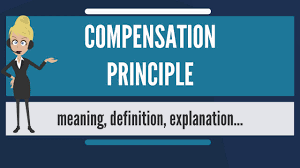What are the principles of good insurance?
Insurance is a business and is therefore governed by certain good business practices, which may be legal or considered morally correct. These are called the principles of good insurance, and their purpose is to protect the insurance company and the insured. Seven basic insurance principles that every good insurance must have. which is:
Outermost integrity
There is a contractual relationship between the policyholder and the insurer, and both parties should act in good faith. They should provide clear information about the terms and conditions of the policy. This is the basic principle for insurance companies to provide guarantees for claims. However, the insurance company must investigate the incident before making any compensation to avoid fraud. If the insurance company provides you with false or misinterpreted information, causing any loss, the insurance company will be liable. However, if you misunderstand the terms of the policy, the company’s liability will be cancelled.
Principle of insurable interest

An insurable interest is a reasonable concern for a person to obtain insurance for any person or property to prevent accidents (such as loss or death). It is usually related to legal relationships, descent ownership and property. A person should have a reasonable interest in his family or business. This principle is important because it keeps the insurance company in the same financial position before the loss.
If any loss occurs to someone who is not the owner of the car, car insurance will provide a different situation. If the person driving the car does not own the car, they may or may not provide compensation.
Principle of subrogation
Subrogation is when an insurance company replaces another company that represents the person liable for the loss. If a third party causes damage to your property, then you have special rights to him. After the policy holder’s loss is compensated, the ownership shall belong to the insurer. Insurance companies can only make money from subrogation claims by taking back the money paid to policyholders. Any additional fees paid by the third party will be returned to the policy holder.
Principle of compensation
Compensation is a guarantee to restore the property in the event of any damage. The insured shall compensate for the equivalent losses as agreed in the contract. The contract only provides protection against accidents and is not expected to be profitable.

The principle of proximity
If two or more damages result in loss, this principle applies. The main reason for the loss is considered. Property can be insured for some losses, but not all. If the cause of the loss is not insured, the insured may have zero chance of compensation.
Principle of Minimizing Loss
The insured needs to bear a little responsibility to minimize any property losses. The insurance company may want to evade compensation; therefore, if you think the judgment is unfair, it is recommended to hire a lawyer.
Understanding how insurance contracts work is very helpful. Just because you have an insurance policy does not guarantee that you will be compensated.
Related Articles
- Everything you need to Know about Health Insurance Cover
- What are the principles of good insurance?
- The Major Policies Offered Under Property Insurance Cover
- Insurance role in addressing climate change and sustainable development
- Top Insurance Providers in the World
- What You Need To Know About Auto Insurance For Teenagers
- How Covid-19 has affected the Insurance Industry
- Why You Should Get Over 60s Life Insurance
- What Is Umbrella Insurance? How Does It Work?
- Reasons Why You Might Need To File A Travel Insurance Claim
Reading Rankings
- Reasons Why Your Homeowner's Insurance Might Get Cancelled
- The Benefits and Risks of Life Insurance. Do you need one.
- Insurance role in addressing climate change and sustainable development
- Factors Affecting Cost Of Travel Insurance
- Why Do You Need Travel Insurance?
- Do I Require Insurance For My Home-based Business?
- Reasons you may need to file a travel insurance claim
- Reasons why your homeowners insurance may be cancelled
recommended
![]()
Reasons why your homeowners insurance may be cancelled
![]()
Reasons you may need to file a travel insurance claim
![]()
2022’s Top Car Insurance Companies
![]()
What You Need To Know About Auto Insurance For Teenagers
![]()
Factors Affecting Cost Of Travel Insurance
![]()
Everything you need to Know about Health Insurance Cover
![]()
Get homeowners insurance for bad roofs
You might like
- What Does Your Car Insurance Policy Not Cover?
- Factors affecting travel insurance costs
- Why Your Car Insurance Claim Might Not Be Accepted
- Mistakes You Can Make When Claiming Your Homeowner's Insurance
- What are the principles of good insurance?
- The role and importance of insurance
- Everyone Should Have These Insurance Policies
- The Benefits and Risks of Life Insurance. Do you need one.







